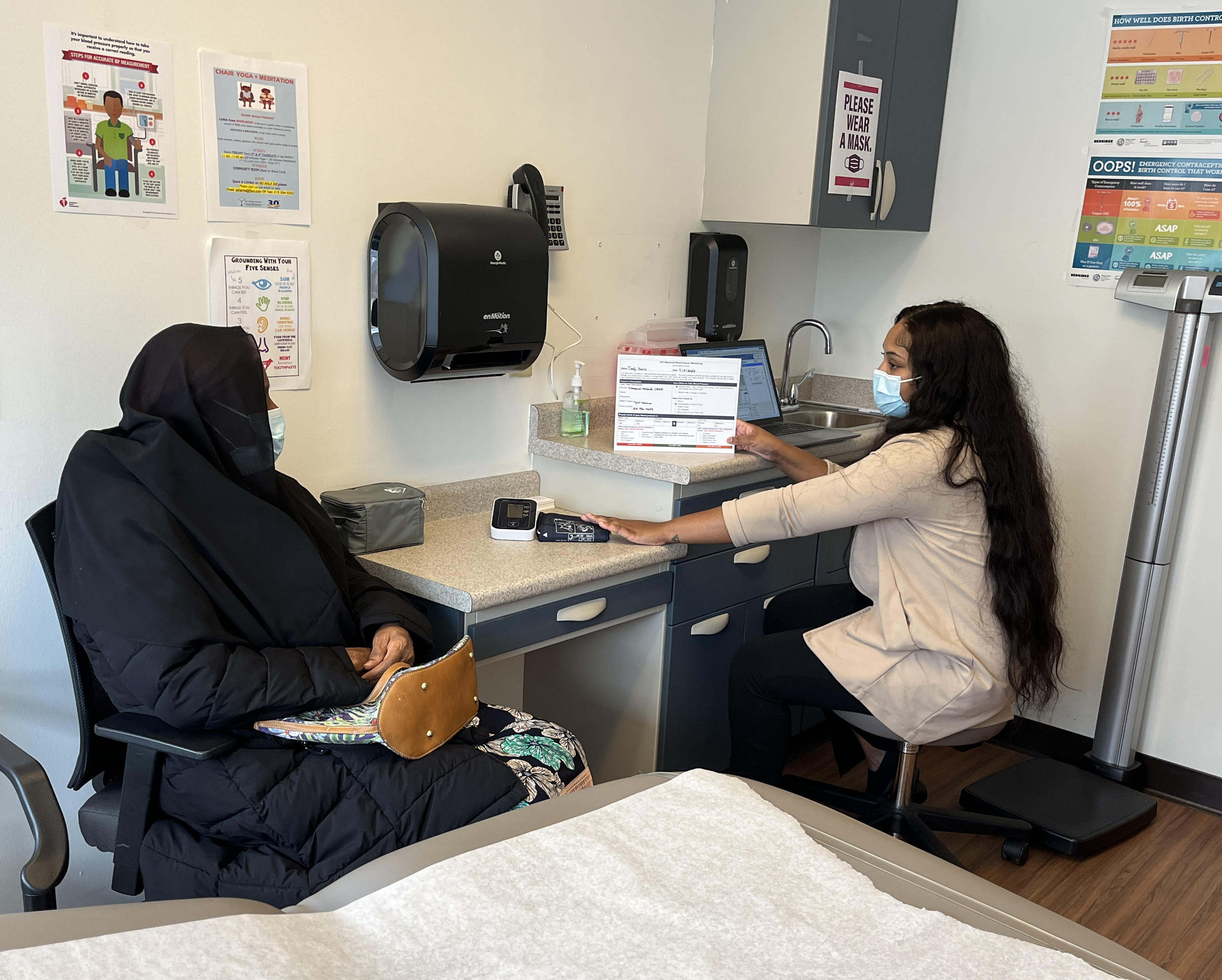With telehealth, online patient portals and remote monitoring becoming increasingly prevalent, more and more low-income patients who lack access to high-speed internet and devices are being left behind.
Enter Tyler Hamler, a Digital Health Navigator at the Health Federation of Philadelphia (HFP). Hamler came to HFP through a grant provided by the Avantor Foundation to help patients gain access to technology and use it to connect with essential healthcare services.
“The role of a Digital Health Navigator is important because it allows patients and providers to optimize the use of digital health tools,” Hamler explained. “We provide patients with digital support, relevant information on low cost devices, benefit programs, and tailored digital skills training that meets each patient where they are. In the end, we help strengthen provider and patient relationships by allowing these connections to extend beyond the clinical setting.”

HFP's Digital Health Navigator Tyler Hamler meets with Trioloji Boiho at Family Practice & Counseling Network’s Health Annex location for the first time to explain how the self-monitored blood pressure (SMBP) program works and to provide her with SMBP materials.
Hamler has found herself working with individuals taking part in self-monitored blood pressure (SMBP) programs at various sites around the city such as the Family Practice and Counseling Network’s Health Annex in southwest Philadelphia and Christian Stronghold Baptist Church* in west Philadelphia. She works with clinical staff to enroll eligible patients into the program, then provides support and education around downloading apps, turning on Bluetooth, creating email accounts and troubleshooting issues. In addition, Hamler assists patients in getting connected to low cost devices and internet service through the FCC’s Affordable Connectivity Program and Lifeline Program.
One individual Hamler has worked closely with is David Garnett, a west Philadelphia resident. Mr. Garnett has seen his blood pressure improve leaps and bounds in the month or so he’s been participating in the SMBP program. He said that working with Hamler and the program have been an important part of getting his life back on track.
“All of them are very kind, helpful and encouraging. That’s very important because you don’t know much going into this,” Mr. Garnett said. “I did have some other issues a couple of years ago, too, so I was a bit concerned about my health overall. Now, I’ve decided to try to get a senior-living apartment, be more social, and get my health back in order.”
By bridging the digital divide, Digital Health Navigators help patients take control of their health and ensure that patients can access the care they need no matter where they are in the world. Hamler recalls a memorable experience where she helped an individual secure phone service, which helped them continue their health journey.
“The most memorable moment in this role came from working with a patient who was in need of phone service,” Hamler said. “The patient had a phone that recently was cut off from service and their main method of communication was email, so they were only able to communicate while either at home or in an area with wifi. As a Digital Health Navigator, I was able to get the patient approved for two federal programs and sent a free phone with unlimited data service within five days of our encounter.”
*SMBP work at Christian Stronghold Baptist Church was part of HFP’s “MTM in Trusted Spaces” project, a program of Million Hearts - Preventing Heart Attacks and Strokes in Primary Care, funded by the Centers for Disease Control and directed by the National Association of Community Health Centers.
- Log in to post comments
